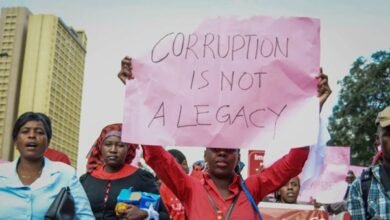Cart’Afrik: Africa’s urbanisation is an opportunity to create great cities
oughly 40% of Africa’s total population — approximately 1.2-billion people — live in cities. This is up by 20% since the 1960s. The rapid rate of urbanisation in African cities is happening at the fastest pace globally. By 2050 the continent’s total population is expected to double; 80% of more than 2.4-billion people will live in Africa’s cities. This creates both an opportunity and a challenge.
By Danga Mughogho*
The opportunity is economic. The remarkable speed of urbanisation becomes a self-induced system whereby people who move from rural areas to the cities create income opportunities, creating demand for services, transport, education and housing. The challenge is sustainability and how quickly cities can keep up with this population explosion while protecting the environment and critical resources, being inclusive and engendering social well-being.
Urban planning needs to transform
Against this challenging background comes a need for transformational urban planning, governance and regulation. Cities need to be at the forefront of urban development and take advantage of technological innovations to better cope with urbanisation issues. Otherwise, they risk unplanned and unregulated city growth and expansion, increasing poverty. Furthermore, existing urban plans are relics of colonialism where they lean towards the elite and further limit inclusivity.
Take climate change, for instance. The green agenda isn’t high on many African cities’ minds, even in South Africa, which counts among the more progressive developing countries on the continent. Yet investing in this critical sector has far-reaching benefits: notwithstanding the evident environmental impact, it has the potential to create green jobs, improve economic autonomy, reduce pollution and manage resources, such as electricity and water, more efficiently.
Another aspect that needs careful review by urban planners is where people, who come to the cities to look for work opportunities, settle. In most cases, they look for land closest to employment chances, leading to a sprawl of slums. This creates spaces that come with increased poverty and unregulated informality, which has become the backbone of the African economy.
An all-of-society approach is needed
Addressing these challenges requires integration and communication. In South Africa, essential reports such as the South African Cities Network’s 2021 State of Cities Report show that a whole-of-government and all-of-society approach is an effective and necessary way forward. A solutions-based approach, expedited by crises such as droughts, floods, corruption and the Covid-19 pandemic, involving all of a city’s stakeholders, from the public and private sector to civil society and citizens, has far-reaching benefits compared with Africa’s historically fragmented and top-down means of governance.
Notably, South Africa is unique in that its local municipalities have greater autonomy allowing them to generate their revenues and manage their individual needs more independently. Coupled with integration with other local role-players, local municipalities have far more power in addressing social ills and creating more equitable living conditions — something other countries could emulate.
Enabling cross-border trade
Cross-continental collaboration is also vital, and the African Union is championing the need for cross-border trade to help uplift societies and radically reduce poverty; in sub-Saharan Africa alone, some 37-million people are affected. Coined as the African Continental Free Trade Area, it aims to connect the continent’s 1.2-billion people across 54 countries to create a single market through which to buy and sell goods and strengthen the economic potential of Africa. While this comes with a need for policy reforms and trade facilitation measures, trading began on 1 January 2021, and the World Bank estimates that by 2035 real economic gains could be worth about $450-billion.
It’s not hard to see that collaboration is vital across the continent, not only from a trade point of view but also to enable engagement across all-of-society stakeholder groups to collectively address the many issues rife within our cities. Let’s reflect on the possibilities that exist within our cities for all our people by aiming to work together to achieve our goals of creating safe, resilient and inclusive cities today and in the future.
*Danga Mughogho is South African Cities Network’s programme manager for well-governed cities
Source Mail & Guardian






